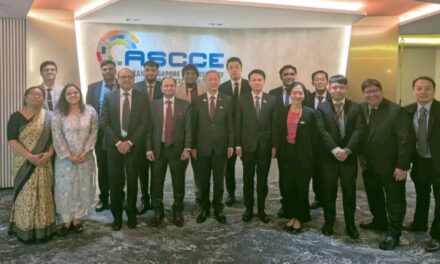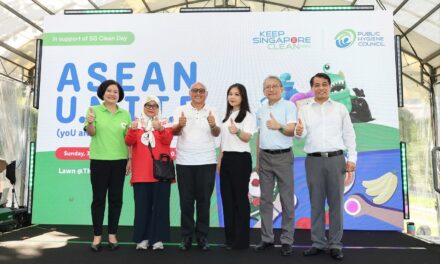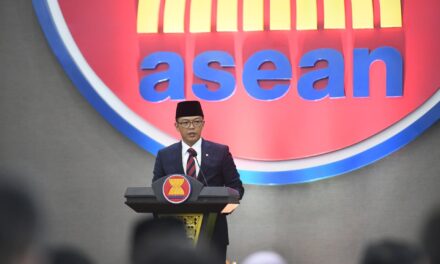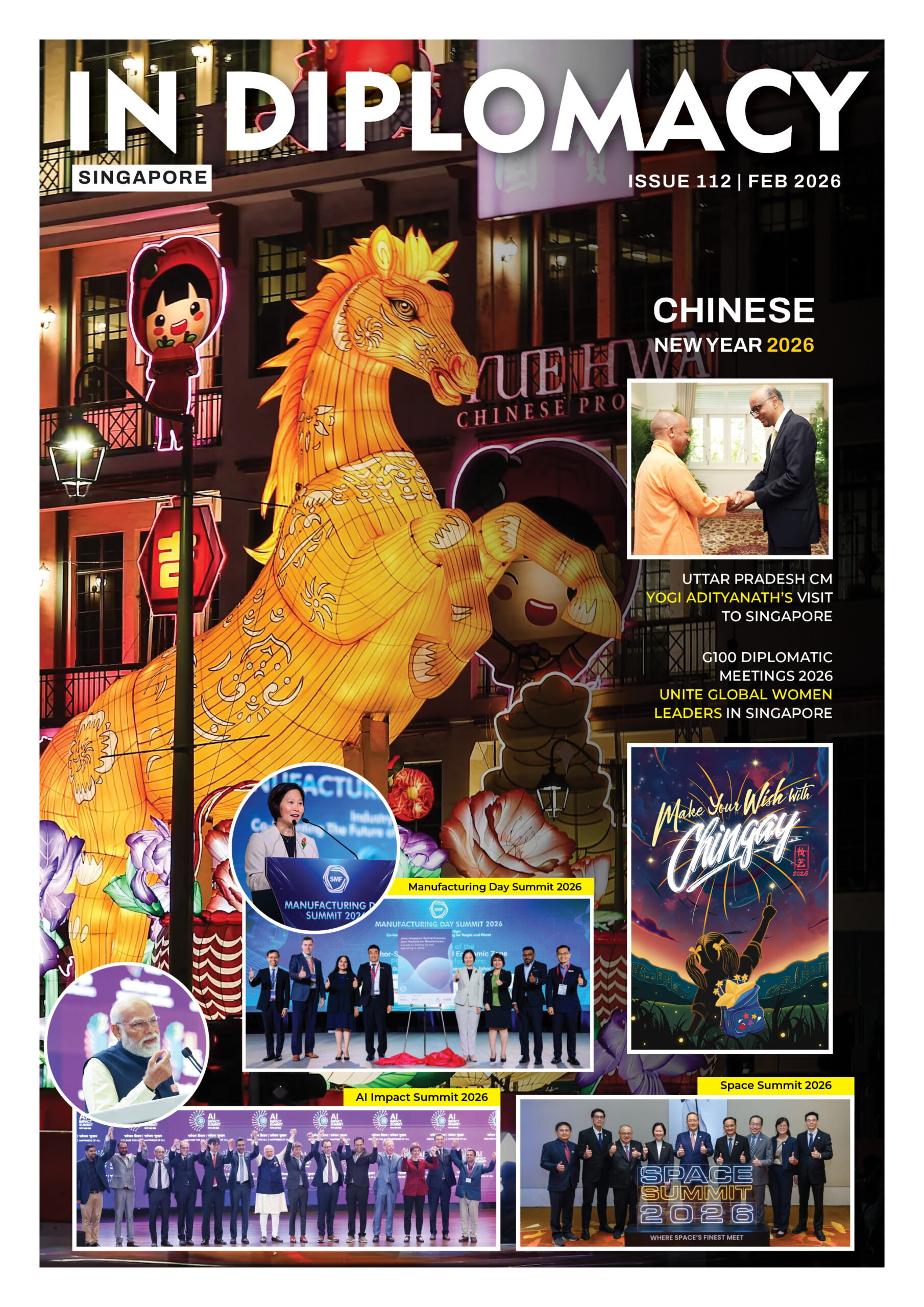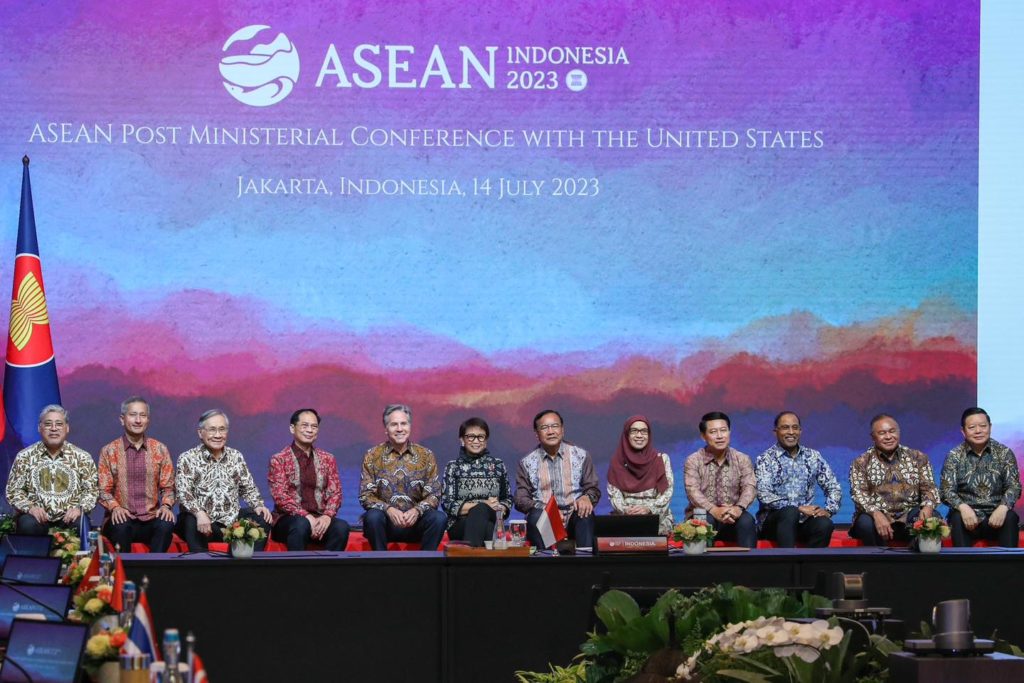
The 56th ASEAN Ministerial Meeting highlighted the region’s centrality in facing global challenges, discussing Myanmar’s situation, the South China Sea, and focusing on the digital revolution and green transformation.
JThe 56th ASEAN Ministerial Meeting/Post Ministerial Conference (AMM-PMC) commenced on 11 July and concluded on 14 July 2023. Before the AMM-PMC, the ASEAN Senior Officials’ Meeting convened at the prestigious Shangri-la Hotel in Jakarta. Esteemed senior officials from the ten ASEAN countries and Timor Leste gathered to engage in fruitful discussions about Indonesia’s ASEAN Chairmanship’s priority programs, strategies to strengthen cooperation with ASEAN’s external partners, and preparations for the upcoming 56th ASEAN Foreign Ministers’ Meeting. Among Indonesia’s Chairmanship priorities were initiatives to bolster ASEAN’s institutional capacity and the effective implementation of the ASEAN Outlook on the Indo-Pacific (AOIP), reflecting the nation’s commitment to advancing regional growth and cooperation.
Following the ASEAN Senior Officials Meeting, the Executive Committee of the Southeast Asia Nuclear Weapon-Free Zone (SEANWFZ) Commission met with great determination to underscore the paramount importance of regional collaboration in maintaining a nuclear weapon-free zone and enhancing overall regional security.
Themed as “ASEAN Matters: Epicentrum of Growth,” this year’s meeting highlighted the crucial significance of ASEAN centrality in facing global challenges and fostering a climate of cooperation among member nations in the realms of economy, security, and development.
Of particular importance at the 56th ASEAN Foreign Ministers’ Meeting (AMM) Retreat Session was the pressing issue of Myanmar. The Foreign Ministers reaffirmed their unwavering commitment to the Five-Point Consensus, which remains the bedrock of ASEAN’s approach to addressing the situation in Myanmar. Dr. Vivian Balakrishnan, Singapore’s Minister for Foreign Affairs, spoke with deep concern about the escalation of violence in Myanmar, urging the cessation of hostilities and the immediate implementation of the Five-Point Consensus by the Tatmadaw. He passionately emphasized the necessity for the ASEAN Chair’s Special Envoy on Myanmar to be granted unrestricted access to all stakeholders, including the iconic leader, Daw Aung San Suu Kyi.
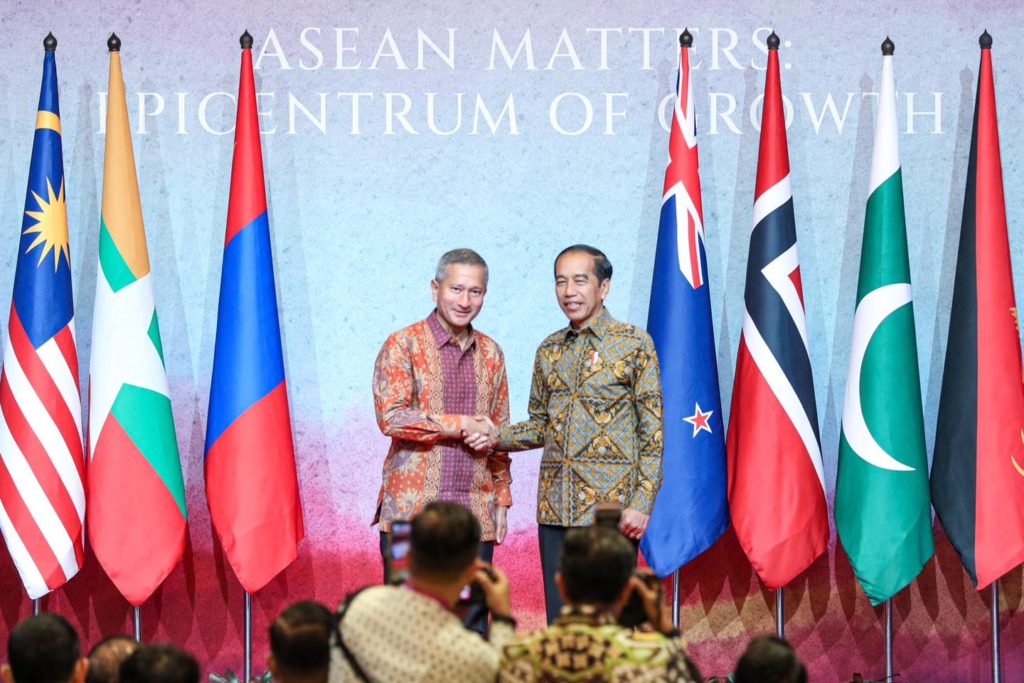
Singapore expressed unequivocal support for Indonesia’s leadership as ASEAN Chair and its concerted efforts to find a resolution for the Myanmar crisis, aiming to halt the violence, facilitate humanitarian assistance, and promote inclusive national dialogue in alignment with the Five-Point Consensus.
In an engaging interview, Minister Balakrishnan underscored ASEAN’s convening power and the vital need for an inclusive and open strategic architecture in the region. He highlighted the focus on embracing the digital revolution and spearheading a green transformation in the post-pandemic era, acknowledging the potential for significant advancements in digital infrastructure and finance within and beyond ASEAN.
On the topic of the South China Sea, it was revealed that significant strides were made with the completion of the second reading of the Single Draft Negotiating Text (SDNT) of the Code of Conduct (COC) during the meetings. Nonetheless, Minister Balakrishnan thoughtfully acknowledged the complexities surrounding the issue and stressed the continued importance of face-to-face negotiations to foster progress.
The AMM-PMC witnessed the enthusiastic participation of 29 countries, including the ASEAN Secretariat and the European Union, and hosted over 1,100 delegates. The meetings successfully fostered a unified ASEAN approach to address regional challenges while promoting a strengthened cooperation with external partners.

